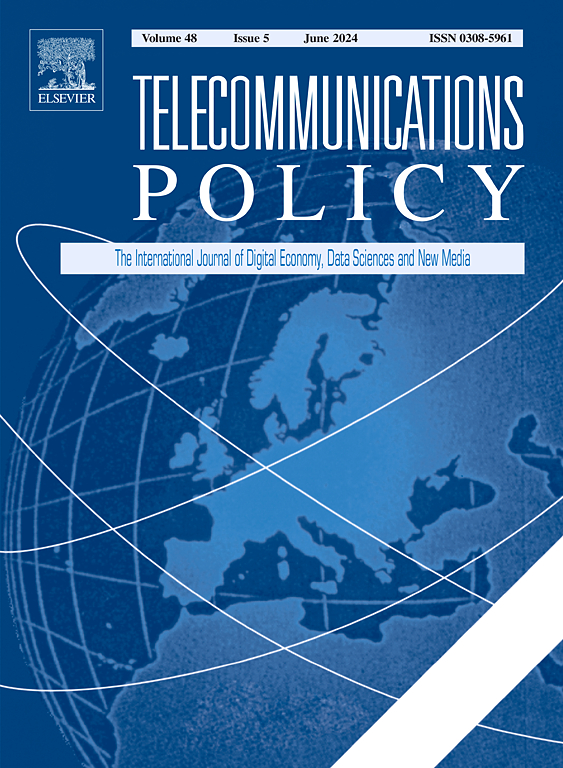Beyond geopolitics: Agency and modularity in mobile telecommunications in Kazakhstan
IF 6.4
2区 管理学
Q1 COMMUNICATION
引用次数: 0
Abstract
Much of the discourse on U.S.-China tech decoupling has centered on trade and geopolitics, often overlooking the ground-level realities of developing countries and their strategic digital choices. The telecommunication industry, with its international supply chain and long-term orientation, is a particularly interesting locus to explore distributed and ground-up agency in countries that depend on Western and Chinese tech giants. In this article, we draw on fieldwork in Kazakhstan conducted in 2022 and 2023, primary and secondary sources, to describe the decision-making process in building and maintaining mobile telecom infrastructure. We identify three key constraints shaping this process - market and network structures, distribution and procurement process, and (geo)political and security considerations. Within these constraints, we uncover spaces for agency at different levels and highlight the ability of different actors – from engineers to telecom companies' management - to influence choices in hardware, software and financing. We argue that the strategic role of telecom firms in national economies, the industry's long-term orientation and modularity, and the firms' ownership structures serve as important counterbalances to sudden disruptions caused by international politics. In a digital world increasingly shaped by competition between U.S. and Chinese tech giants, findings from Kazakhstan highlight the potential for developing countries to carve their own digital trajectories and offer a framework for future research to extend this analysis to other sectors and regions.
超越地缘政治:哈萨克斯坦移动通信的代理和模块化
关于美中科技脱钩的讨论大多集中在贸易和地缘政治上,往往忽视了发展中国家的基本现实及其战略数字选择。在依赖西方和中国科技巨头的国家,电信行业具有国际供应链和长期定位,是探索分布式和基层代理的一个特别有趣的场所。在本文中,我们借鉴了2022年和2023年在哈萨克斯坦进行的实地调查,主要和次要来源,以描述建设和维护移动电信基础设施的决策过程。我们确定了影响这一过程的三个关键制约因素——市场和网络结构、分销和采购过程,以及(地缘)政治和安全考虑。在这些约束条件下,我们发现了不同层次的代理空间,并强调了不同参与者(从工程师到电信公司管理层)影响硬件、软件和融资选择的能力。我们认为,电信公司在国民经济中的战略作用、该行业的长期定位和模块化以及公司的所有权结构都是对国际政治造成的突然中断的重要平衡。在美国和中国科技巨头之间的竞争日益塑造的数字世界中,哈萨克斯坦的研究结果突显了发展中国家开辟自己的数字轨迹的潜力,并为未来的研究提供了一个框架,将这一分析扩展到其他行业和地区。
本文章由计算机程序翻译,如有差异,请以英文原文为准。
求助全文
约1分钟内获得全文
求助全文
来源期刊

Telecommunications Policy
工程技术-电信学
CiteScore
10.80
自引率
12.50%
发文量
122
审稿时长
38 days
期刊介绍:
Telecommunications Policy is concerned with the impact of digitalization in the economy and society. The journal is multidisciplinary, encompassing conceptual, theoretical and empirical studies, quantitative as well as qualitative. The scope includes policy, regulation, and governance; big data, artificial intelligence and data science; new and traditional sectors encompassing new media and the platform economy; management, entrepreneurship, innovation and use. Contributions may explore these topics at national, regional and international levels, including issues confronting both developed and developing countries. The papers accepted by the journal meet high standards of analytical rigor and policy relevance.
 求助内容:
求助内容: 应助结果提醒方式:
应助结果提醒方式:


